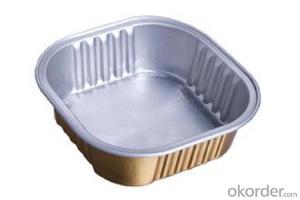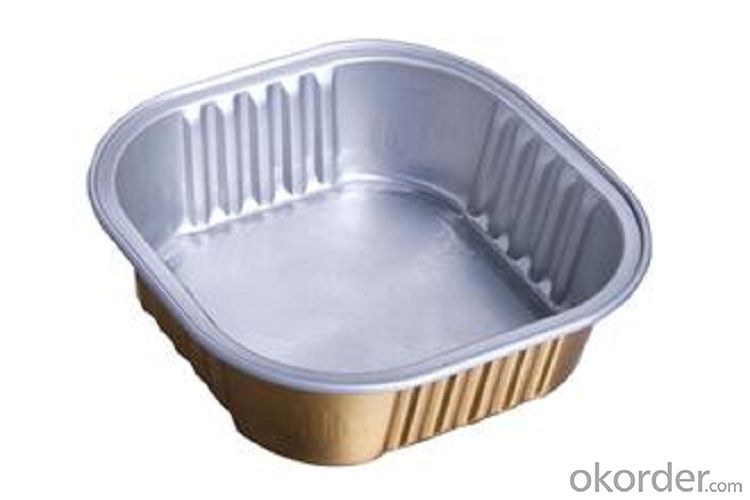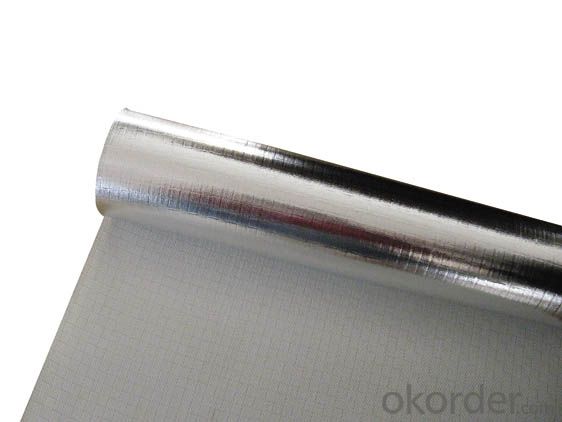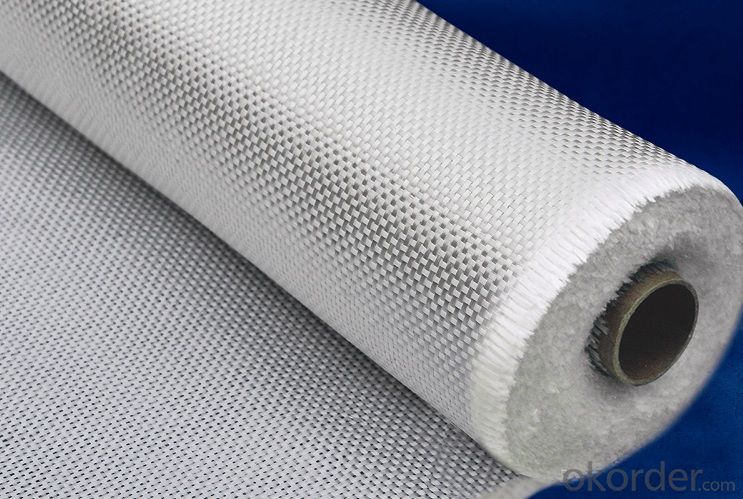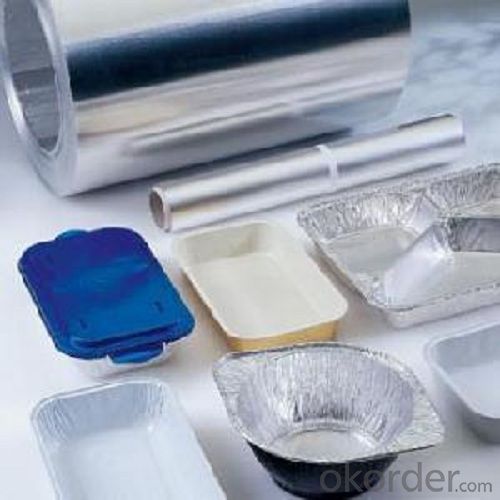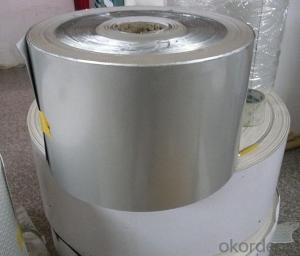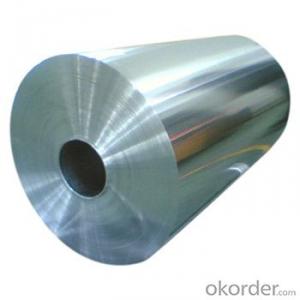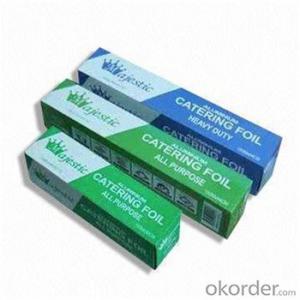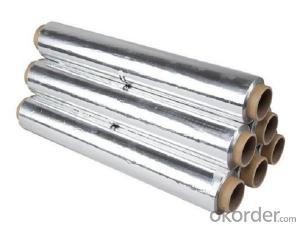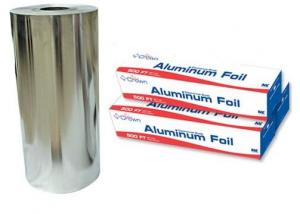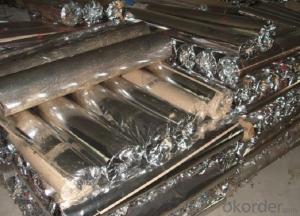Household Aluminum Foil Paper for Food Wrapping
- Loading Port:
- Shanghai
- Payment Terms:
- TT OR LC
- Min Order Qty:
- 20 m.t.
- Supply Capability:
- 3000 m.t./month
OKorder Service Pledge
OKorder Financial Service
You Might Also Like
l Product Description:
| Product speciafication | aluminium foil |
| Length | 3-300m |
| Width | 10-60cm |
| Thinkness | 8-24micron |
| Packing | box+out carton or PP bag +out carton |
| Certificate | FDA, SGS, ITS |
l Packaging & Delivery
Packaging detail: Standard seaworthy exporting carton, Wooden pallets, waterproof paper and plastic coverage or or as customer's requirements
Delivery detail: about 25 days from received original L/C or advance payment
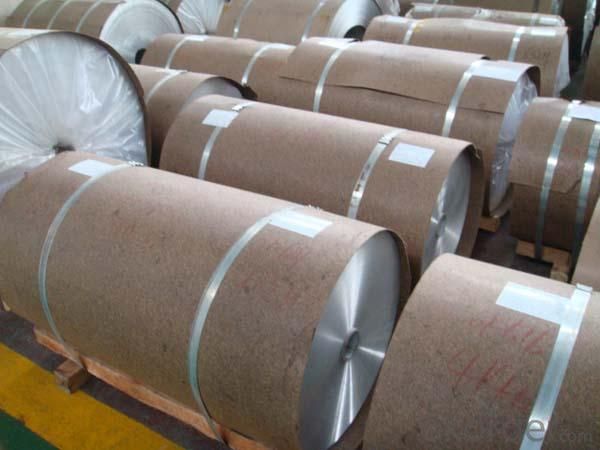
l Company Profile
CNBM International Corporation, China National Building Materials (Group) Corporation, is one of the largest companies in China building material & equipment industry, with 42,800 employees and sales in 2005 of US Dollar 4.395 billion. In 2006, China National Building Material Company Limited was listed on Hong Kong Stock Market with the stock code as 3323.
The business scope of CNBM covers from manufacturing and sales of a series of building materials to scientific research and design, import and export trade. In many of these fields, CNBM is playing the leading role.
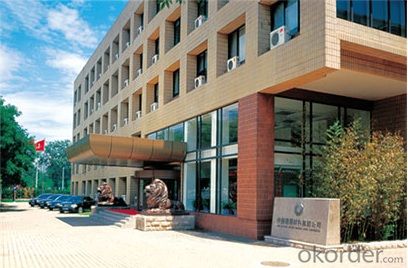
l Product Images
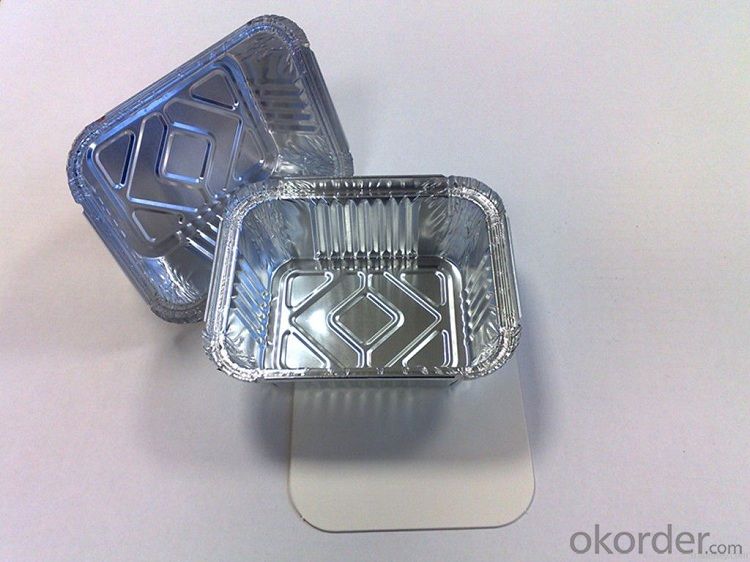
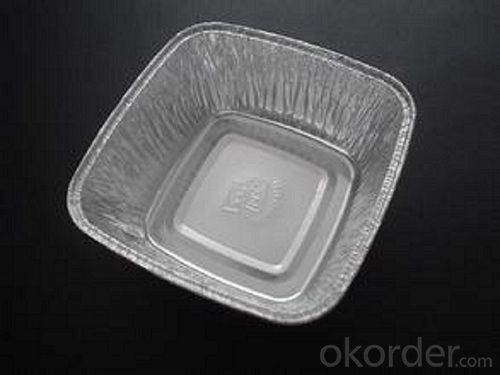
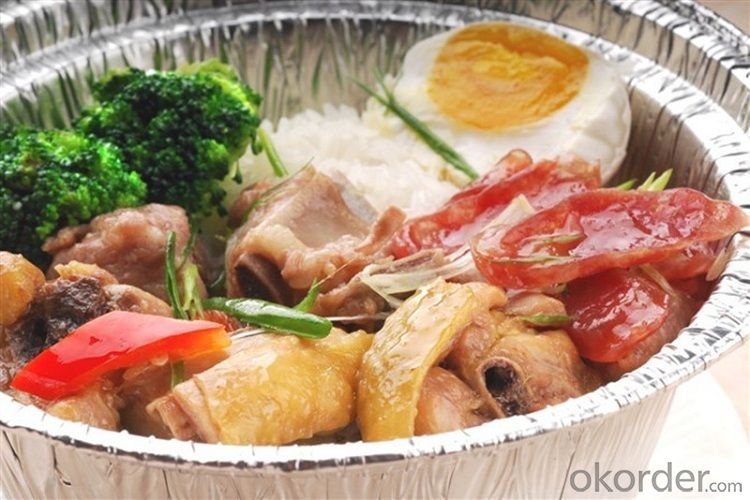
l FAQ
Q: Do you provide free samples?
A: Yes, free samples will be sent to you on freight at destination.
Q: Can I get your latest products catalogue?
A: Yes, it will be sent to you in no time.
Q: What is the MOQ?
A: 20 tons
Q: What are your payment terms?
A: We accept L/C, T/T.
l Contact Us
Email:service@okorder.com
- Q: What are the different edge profiles available for aluminum coils?
- There are several different edge profiles available for aluminum coils, each serving a specific purpose or aesthetic preference. Some of the most common edge profiles include: 1. Square Edge: This is the most basic and straightforward edge profile, with sharp corners and a flat surface. It is often used for industrial applications where functionality is prioritized over aesthetics. 2. Round Edge: The round edge profile features a curved surface that eliminates sharp corners. This profile is commonly used in applications where safety is a concern, such as automotive parts or children's playground equipment. 3. Beveled Edge: The beveled edge profile is characterized by a slanted or angled surface. It is often chosen for architectural purposes, as it adds a sleek and modern look to aluminum coils. Additionally, the beveled edge helps to minimize the risk of sharp edges and potential injuries. 4. Full Radius Edge: This edge profile features a smooth, rounded surface that extends along the entire length of the coil. Full radius edges are often preferred for applications where the coil will come into contact with other materials, as they reduce the risk of damage or scratching. 5. Hemmed Edge: A hemmed edge is created by folding the edge of the coil back onto itself, resulting in a double layer of metal. This profile is commonly used in applications where a strong and durable edge is required, such as in the manufacturing of appliances or cabinets. 6. Tapered Edge: The tapered edge profile gradually narrows the width of the coil towards the edge, creating a tapered or sloping appearance. This profile is often chosen for architectural or decorative purposes, as it adds visual interest and can make a space appear more dynamic. It is important to note that the availability of these edge profiles may vary depending on the manufacturer and the intended application of the aluminum coil. Therefore, it is recommended to consult with the supplier or manufacturer to determine the specific edge profiles that are available for a particular coil.
- Q: Can aluminum coils be used in the production of kitchen utensils?
- Kitchen utensils can indeed incorporate aluminum coils in their production. Aluminum is a favored material for kitchen utensils owing to its lightweight nature, durability, and ability to conduct heat. Aluminum coils are effortlessly malleable, allowing them to take on various forms and designs for utensils like pots, pans, baking trays, and even cutlery. Moreover, aluminum possesses resistance against corrosion, making it a suitable choice for contact with food and liquids. Nevertheless, it is essential to keep in mind that aluminum utensils may require a non-stick coating or a protective layer to prevent any adverse reactions with acidic or alkaline foods. Ultimately, owing to their adaptability and practicality, aluminum coils are extensively employed in the production of kitchen utensils.
- Q: This question asks for a comparison between steel wires and other materials when used in coilings, highlighting the pros and cons of steel wires.
- <p>The advantages of using steel wires for coilings include high tensile strength, durability, and resistance to corrosion. Steel wires are also cost-effective and widely available. They offer excellent fatigue resistance, making them suitable for applications requiring repeated coiling and uncoiling. Disadvantages include higher weight compared to some alternatives, which can be a concern in certain applications. Steel wires can also be prone to rust if not properly treated, and they may not be as flexible as some other materials, potentially leading to difficulties in handling or installation. Additionally, steel's magnetic properties can be a disadvantage in environments where non-magnetic materials are required.</p>
- Q: What are the different types of surface finishes for decorative purposes?
- There are several types of surface finishes for decorative purposes, including glossy, matte, textured, metallic, and antique finishes.
- Q: I can't figure out what the metabolic role of aluminum is. Been searching for a while and can't seem to find anything concrete.If you can, please include sources. Thanks!
- I okorder /
- Q: Are there any restrictions on the coil length of aluminum coils?
- Restrictions do exist regarding the length of aluminum coils. Typically, the maximum coil length is determined by the capabilities of the equipment utilized for coil production and handling. Several factors contribute to this determination, including the dimensions and capacity of coil winding machines, transportation and storage restrictions, and the coil's weight and stability. Moreover, longer coils may encounter increased handling and logistical challenges, such as heightened risk of damage during transportation or difficulties in uncoiling and processing. Consequently, it is crucial to take into account these restrictions and limitations when deciding on the suitable length for aluminum coils.
- Q: Are there any limitations to the maximum coil diameter of aluminum coils?
- There exist limitations on the maximum coil diameter of aluminum coils. Factors such as the type and thickness of the aluminum, the coiling equipment, and the intended application of the coil determine the maximum coil diameter. Thinner and more ductile aluminum alloys generally allow for larger coil diameters. However, maintaining the structural integrity of the coil and preventing deformation, wrinkling, or damage during handling and transportation becomes increasingly challenging as the coil diameter increases. Moreover, the coiling equipment may have its own restrictions on the maximum diameter it can handle. Hence, it is crucial to take these factors into consideration when determining the maximum coil diameter for aluminum coils.
- Q: I wrap everything with aluminum foil and bake it in the oven -- fish, meat, vegetables. Is this really safe? Or safe when done occasionally? Or should I find a new way?
- Perfectly safe to use aluminum foil in the oven..........NOT so much in the microwave, lol. :)
- Q: Can aluminum coils be used for electrical wiring?
- Yes, aluminum coils can be used for electrical wiring. Aluminum is a good conductor of electricity and has been used for electrical wiring in the past. However, it is important to note that aluminum wiring is not as commonly used as copper wiring due to some concerns. Aluminum has a higher resistance than copper, which may lead to increased power losses and heating. It also has a tendency to oxidize, causing potential fire hazards. To mitigate these issues, special precautions need to be taken when using aluminum wiring, such as using larger gauge wires and using connectors specifically designed for aluminum. Copper wiring is generally preferred for its lower resistance and better conductivity, but aluminum wiring can still be used if proper precautions are taken.
- Q: i have recently received a task to research the recycling processes of aluminum ..... the task also asks to STATE ALL RELEVANT MATHEMATICAL OR/AND CHEMICAL EQUATIONS ...when i researched the task i found how aluminum is recycled, but i couldnt find the relevant equations ...can you please help meall answers are really appreciated
- Aluminum okorder /
Send your message to us
Household Aluminum Foil Paper for Food Wrapping
- Loading Port:
- Shanghai
- Payment Terms:
- TT OR LC
- Min Order Qty:
- 20 m.t.
- Supply Capability:
- 3000 m.t./month
OKorder Service Pledge
OKorder Financial Service
Similar products
Hot products
Hot Searches
Related keywords
